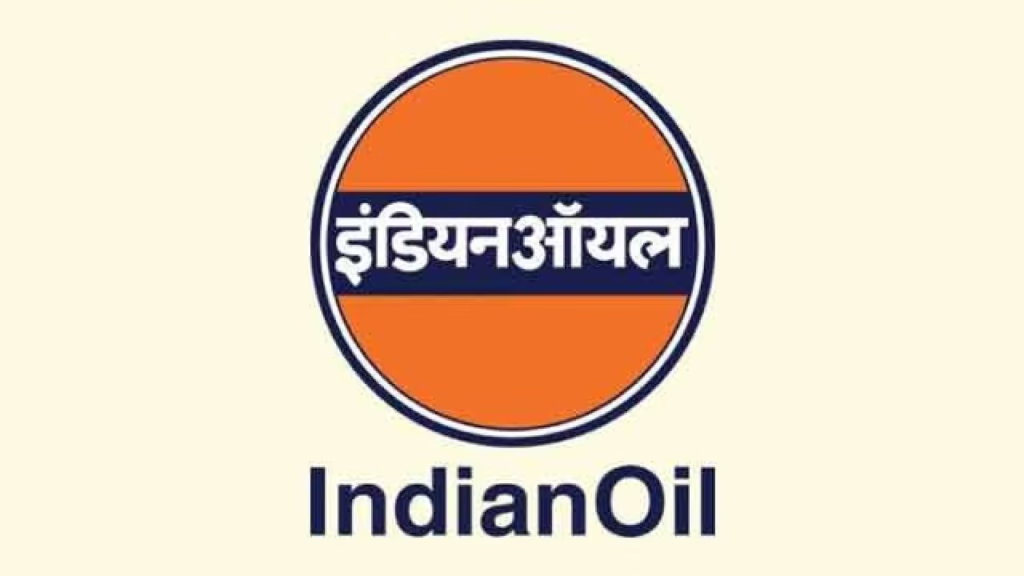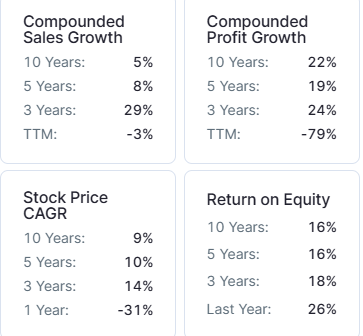Indian Oil Corporation Ltd. was listed on the NSE on July 24, 1996. In the last five years, its stock has given massive returns of more than 200% to its investors. Will IOC continue to provide such impressive returns in the future? Let’s explore IOC’s growth potential and the IOC share price target 2025 to 2050 in this article.
About IOC

Indian Oil Corporation (IOC) was started in 1959 and is owned by the government of India. The company makes petrol, diesel, and LPG and sells them across the country. It also has many fuel stations and pipelines to transport oil. Today, IOC is one of the most important companies in India for fuel and energy.
IOC Business Model
- Making Petrol and Diesel: IOC cleans crude oil in its refineries and makes petrol, diesel, and gas. IOC owns many petrol pumps across India. It makes money by selling fuel for cars, bikes, and trucks.
- LPG Gas Cylinders: IOC sells cooking gas (LPG) to homes and hotels.
- Pipelines: IOC has big pipelines to move oil and gas. Other companies pay IOC to use these pipelines.
- Selling Chemicals: IOC makes chemicals used in plastics, medicines, and paints.
- Airplane Fuel: IOC sells fuel to airplanes at airports.
- Engine Oils: It sells engine oils like Servo, which people use in cars and machines.
- Selling Natural Gas: IOC sells gas to factories and homes for cooking and heating.
- Green Energy: IOC is investing in solar, wind, and biofuels. In the future, it will make money from clean energy too.
IOC Fundamental Analysis
| Stock Name | Indian Oil Corporation Ltd. |
|---|---|
| NSE Symbol | IOC |
| Market Cap | ₹ 209842 Cr. |
| 52W High | ₹ 186 |
| 52W Low | ₹ 111 |
| Stock P/E | 17.3 |
| Book Value | ₹ 132 |
| Dividend Yield | 8.12 % |
| ROCE | 7.37 % |
| ROE | 5.56 % |
| Face Value | ₹ 10.0 |
| Industry PE | 20.1 |
| Price to book value | 1.08 |
| Debt to Equity | 0.82 |
| PEG Ratio | 0.77 |
| Quick ratio | 0.18 |

| Shareholders | March 2023 | March 2024 | March 2025 |
|---|---|---|---|
| Promoters | 51.50% | 51.50% | 51.50% |
| FIIs | 6.91% | 8.49% | 7.39% |
| DIIs | 11.92% | 10.23% | 9.97% |
| Goverment | 19.60% | 19.57% | 19.57% |
| Public | 10.06% | 10.18% | 11.57% |
| No. of Shareholders | 18,27,303 | 24,28,561 | 31,89,614 |
Key Factors Driving IOC Future Growth
- More Fuel Demand: As more people buy cars, trucks, and bikes, the need for petrol and diesel will increase. Also, as industries grow, they will need more fuel for machines and transport.
- More Petrol Pumps: IOC is opening new petrol pumps in both cities and villages. This makes it easier for people to get fuel, which increases sales and profits for IOC.
- LPG and Gas Expansion: More homes, hotels, and businesses are switching to LPG and natural gas for cooking and heating. IOC is expanding its gas supply network, which will help it earn more money in the future.
- Better Pipelines: IOC is building more pipelines to transport fuel safely and quickly across India. Pipelines are cheaper and more efficient than trucks and trains, which helps IOC save money and increase profits.
- Green Energy Plans: The world is moving toward clean energy, like solar, wind, and biofuels. IOC is investing in these energy sources, so it can continue to grow even if demand for petrol and diesel reduces in the future.
- More Airplane Fuel Sales: The number of flights and new airports is increasing in India. Airlines need a lot of fuel, and IOC is a major supplier. As air travel grows, IOC will sell more fuel and make more money.
Pros of Investing in IOC
- Leading Market Share: IOC controls 42% of India’s market for petroleum oil and lubricants, with over 60,900 customer touchpoints.
- Large Refining Capacity: The company operates 11 refineries across India, with a total capacity of 80.80 million metric tonnes per annum (MMTPA), representing 31% of the country’s refining capacity.
- Expansion Projects: IOC is investing ₹61,000 crore in a naphtha cracker project in Paradip, Odisha, aiming to enhance its petrochemical production capabilities.
- Government Support: As a Maharatna company controlled by the Government of India, IOC benefits from significant government backing, which can provide stability and support for its operations.
- Low P/B Ratio (Undervalued Stock): IOC Price to Book Value (P/B) ratio is 1.08 which shows that its stock is trading close to its intrinsic value and may be undervalued.
- Low PE Ratio Compared to Peers: IOC PE ratio is 17.3, which is lower than the industry average of 20.1, making it relatively undervalued and potentially a good investment opportunity.
Cons of Investing in IOC
- Volatility in Crude Oil Prices: IOC’s profitability is highly dependent on crude oil prices. Sudden price increases can raise input costs, while crashes can lower inventory value.
- Competition from Private Players: Reliance Industries (Jio-BP), Adani Total Gas, and foreign players are boosting competition in the energy sector, affecting market share.
- Transition to Renewable Energy: The global shift towards electric vehicles (EVs) and renewable energy represents a long-term threat to IOC’s traditional oil and gas business.
- Decreasing Profits – IOC profits have been decreasing at a CAGR of -22% over the last three Years.
- Decrease in Institutional Confidence: DIIs have reduced their holding to 9.97% in March 2025 from 10.08% in December 2024, while FIIs have reduced their holding to 7.39% in March 2025 from 7.43% in December 2024, indicating a decline in institutional confidence in the company’s future growth prospects.
IOC Ltd Balance Sheet
| Particulars | March 2023 | March 2024 | March 2025 |
|---|---|---|---|
| Equity Capital | 13,772 | 13,772 | 13,772 |
| Reserves | 125,949 | 169,645 | 172,716 |
| Borrowings | 148,977 | 132,628 | 152,271 |
| Other Liabilities | 153,298 | 166,639 | 168,109 |
| Total Liabilities | 441,995 | 482,683 | 506,867 |
| Fixed Assets | 180,048 | 195,998 | 205,323 |
| CWIP | 51,133 | 61,032 | 73,740 |
| Investments | 52,190 | 65,542 | 67,218 |
| Other Assets | 158,624 | 160,111 | 160,585 |
| Total Assets | 441,995 | 482,683 | 506,867 |
By the end of 2025, the IOC share price is expected to be around ₹205 in normal conditions. In a bear market, it might be ₹190, and in a bull market, it may go up to ₹230.
| IOC Share Price Target 2025 | Rupees (₹) |
|---|---|
| 1st Target | 190 |
| 2nd Target | 205 |
| 3rd Target | 230 |
In 2026, the IOC share price is expected to be around ₹260 in a normal situation. In a bear market, it might be ₹230, and in a bull market, it may cross ₹300.
| IOC Share Price Target 2026 | Rupees (₹) |
|---|---|
| 1st Target | 230 |
| 2nd Target | 260 |
| 3rd Target | 300 |
According to our analysis, the IOC share price is expected to be around ₹300 in 2027. In a bear market, it might be ₹270, and in a bull market, it may cross ₹390.
| IOC Share Price Target 2027 | Rupees (₹) |
|---|---|
| 1st Target | 270 |
| 2nd Target | 300 |
| 3rd Target | 390 |
According to our analysis, the IOC share price may trade near ₹380 by 2028; bearish conditions could pull it down to ₹330, while a strong bull run might lift it to ₹500.
| IOC Share Price Target 2028 | Rupees (₹) |
|---|---|
| 1st Target | 330 |
| 2nd Target | 380 |
| 3rd Target | 500 |
In a normal situation, the IOC share price is projected to be approximately ₹450 in 2029. In a bear market, the value may be as low as ₹390, while in a bull market, it may rise to ₹650.
| IOC Share Price Target 2029 | Rupees (₹) |
|---|---|
| 1st Target | 390 |
| 2nd Target | 450 |
| 3rd Target | 650 |
In a normal situation, the IOC share price is projected to be approximately ₹520 in 2030. In a bear market, the value may be as low as ₹470, while in a bull market, it may rise to ₹850.
| IOC Share Price Target 2030 | Rupees (₹) |
|---|---|
| 1st Target | 470 |
| 2nd Target | 520 |
| 3rd Target | 850 |
By 2035, the IOC share price is projected to be around ₹1150 under normal conditions. In adverse markets, the price could fall to ₹940, while favorable conditions might push it up to ₹2550.
| IOC Share Price Target 2035 | Rupees (₹) |
|---|---|
| 1st Target | 940 |
| 2nd Target | 1150 |
| 3rd Target | 2550 |
Under normal conditions, the IOC share price might hit ₹2150 by 2040. A bearish trend could lower it to ₹1880, whereas a bullish surge could raise it to ₹7650.
| IOC Share Price Target 2040 | Rupees (₹) |
|---|---|
| 1st Target | 1880 |
| 2nd Target | 2150 |
| 3rd Target | 7650 |
In 2050, the IOC share price is expected to be around ₹7950 in a normal situation. In a bear market, it might be ₹7520, and in a bull market, it may go up to ₹45900.
| IOC Share Price Target 2050 | Rupees (₹) |
|---|---|
| 1st Target | 7520 |
| 2nd Target | 7950 |
| 3rd Target | 45900 |
| Years | Target Price |
|---|---|
| IOC Share Price Target 2025 | ₹190 to ₹230 |
| IOC Share Price Target 2026 | ₹230 to ₹300 |
| IOC Share Price Target 2027 | ₹270 to ₹390 |
| IOC Share Price Target 2028 | ₹330 to ₹500 |
| IOC Share Price Target 2029 | ₹390 to ₹650 |
| IOC Share Price Target 2030 | ₹470 to ₹850 |
| IOC Share Price Target 2035 | ₹940 to ₹2550 |
| IOC Share Price Target 2040 | ₹1880 to ₹7650 |
| IOC Share Price Target 2050 | ₹7520 to ₹45,900 |
Conclusion
Indian Oil Corporation (IOC) is a leading energy company with strong government backing and a vast fuel distribution network. It has growth potential through expansion in green energy, petrochemicals, and pipelines. However, IOC faces challenges like fluctuating profits, refining margin pressures, and stock price volatility. The company also relies heavily on fuel demand and government policies, which can impact its performance. While IOC presents a long-term investment opportunity, investors should consider these risks before investing. For the latest updates, visit the IOC official website.
Disclaimer
This article is for educational purposes only. It is not a stock recommendation and should not be treated as such. Please ask your financial advisor before making any investment decision.
Also Read: CDSL Share Price Target 2025 to 2050

